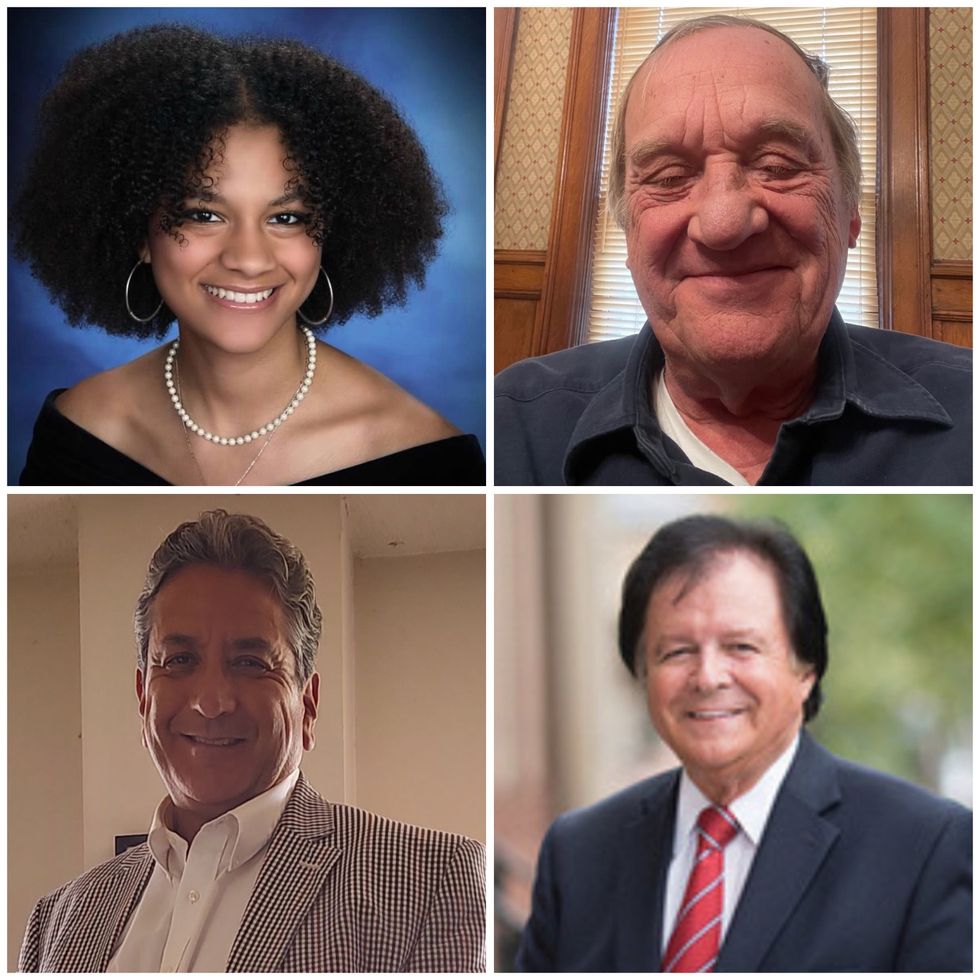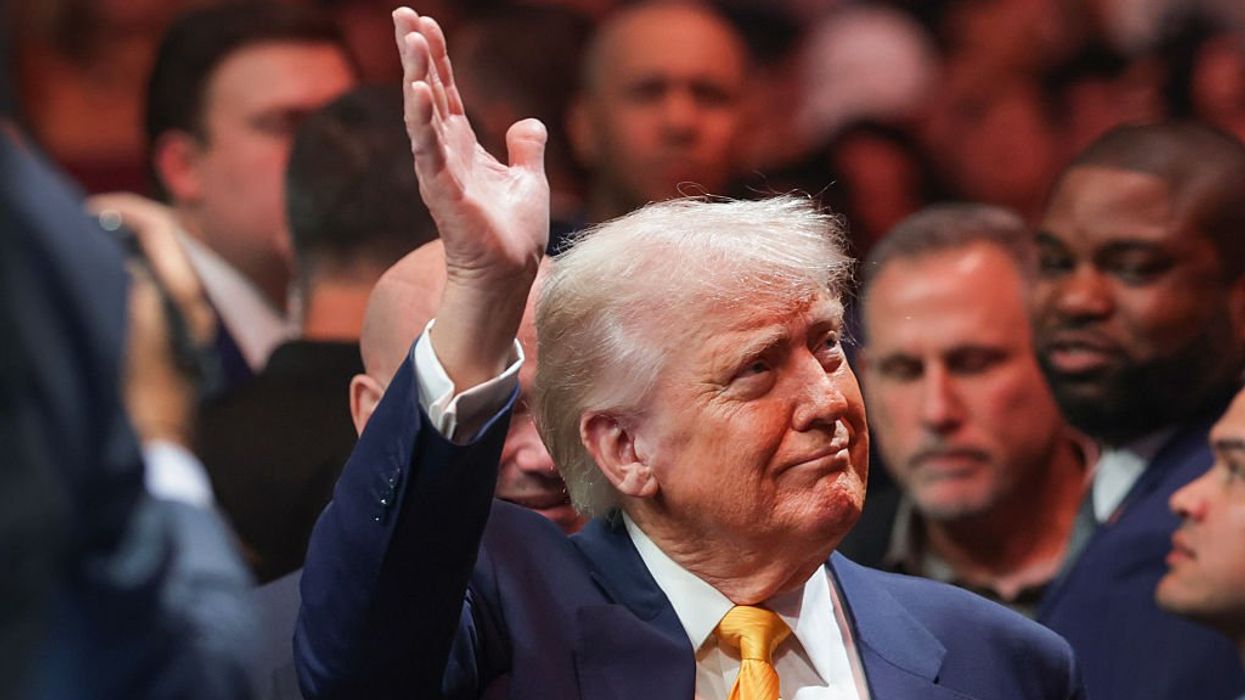Ahead of Election Day 2024, the Fulcrum launched We the People, a series elevating the voices and visibility of the persons most affected by the decisions of elected officials.
Now, we continue the series to learn if the Donald Trump administration is meeting the voters' motivations for voting in the 2024 presidential election.
A lot has happened since January 20, the day President Trump was inaugurated for the second time. Barely three months have passed, and it already feels like a much longer stretch of time.
Unlike his first term, President Trump came into office prepared to implement his vision. Not only did he surround himself with loyalists who could streamline his agenda, but he also issued 111 presidential executive orders (as of April 7), compared to 220 during his entire first term, and the most of any other U.S. president in history.
During the month of March, the Fulcrum reached out to voters across the U.S. and asked for their opinion about President Trump’s second term so far, whether he met their expectations, and what they were most or least satisfied with. This is what they told us. Not everyone was comfortable sharing their picture and full name. We respected their wishes.
 From top left to right, clockwise: Michela Irving, Francis X. Mazur, Aldo Terrazas, Bob Shaffer
From top left to right, clockwise: Michela Irving, Francis X. Mazur, Aldo Terrazas, Bob Shaffer
Michela Irving, 19 years, student – Massachusetts
I am very disheartened by the first months of Trump’s presidency, and it makes me scared for what is to come. This time, he has managed to get much more done in a shorter time. As a college student studying political science, it makes me scared of what I will find when I graduate and attempt to enter the world.
President Trump is not meeting my expectations at all. Even though he was not who I wanted to see in office, I still had basic expectations of him following simple constitutional law and attempting to do what is best for the country. Instead, he has put himself first time and time again. It seems he gives the American people no thought at all.
Bob Shaffer, 81 years, realtor, Maryland
My feeling is one of hope for our country. It has been a long time since I have felt confident that we will not lose our heart and soul. Ever since Reagan, I have felt the moral fiber of this great country has been slipping away. Trump is giving us a fresh start, whether it will be the right road, we will know faster than waiting on history to judge. During his last administration, he did not know what he was doing, and his foes didn't give him a chance to learn on the job. It was a total disaster. I think Mr. Trump has mellowed his derogatory remarks, which I hated. He is more considerate and more in tune with what politics is.
I have enjoyed the team Mr. Trump has amassed. They are young, intelligent, vibrant, approachable, knowledgeable, and are all behind their leader. He is doing exactly what I elected him to do, and he is producing. I know the citizens of this great country cannot stand him because of his bravado and demeanor, but that is where I part from my fellow man and consider them small minded and one dimensional. We must look at results and if they are produced, let's get behind him. If he fails, I will be the first person to be on the wagon to ride him out of town.
Francis X. Mazur, 75 years, reverend, New York
I live in Buffalo, and there are over 5 million Canadian people who live here. Canadians are looking at the trade wars and the notion that Canada should be the 51St State as offensive! This is an insult to people who have lived on a border with minimum security. Recently, Toronto has removed American flags from their public squares. In Buffalo, we have many immigrants and refugees. We welcome them. Trump does not welcome them. His message is one of xenophobia, racism, and hate. Look at his view on DEI. Eliminating true stories about our most cherished heroes.
Mr. Trump wants to impeach judges who don't agree with him. Wrong. Ukraine is kept from the table in negotiating peace talks. Wrong. People with green cards are being deported. Wrong. Mr. Trump has denied security clearance for his political enemies. Not right. I am worried about what will happen with Social Security under Trump. There is nothing positive I can say about this president. He wants to divide the country so people will rise and then blame it on them, not him. What amazes me is the people who support his agenda: hate, racism, etc. Simply put, he is a liar, never seeking the truth. In the future, we will need a charismatic leader who will bring some common decency back to our country.
Elie Akel, 40 years, communications, Washington D.C. (no photo)
When it comes to the Middle East, it is much worse than what Arabs in Michigan and Arabs in general thought. Many of us believed he was going to be better than Biden, especially in Lebanon and in Gaza. Turns out his approach is bloodier, harsher, and more hawkish. Look at the new ambassador to Israel, Mike Huckabee. He's saying there is Judea and Samaria, and no such thing as the West Bank. I feel Arab Americans who prayed with him on the stage during his campaign got played, and he lied to them.
Naively, I thought it would be like his first term in. Now we are seeing attacks on congressional resolution, on the judiciary, on the courts, the judges, freedom of speech, civil rights, and they are dismantling entire government agencies. This is the playbook of the rise of authoritarianism and fascism. It’s scary for a lot of marginalized groups and for White Americans too. Right now, there are no rules. They are using any loophole to implement any policy they want. We are seeing travel warnings for the U.S. coming from the UK, France, Germany, Canada. This never happened in my lifetime.
As a U.S. citizen of Arab descent, I don't feel safe because I have worrisome ideas that I've never had before in the United States. And any sane person, with any logical brain, wouldn't feel safe either. I have American friends born here who are worried about where the country is headed and the dismantling of democratic institutions. We're witnessing videos of a police state, what generally happens in some other countries, under dictatorships or authoritarian regimes, where people are kidnapped from the streets. We are witnessing that today, as we speak.
Aldo Terrazas, 71 years, attorney, Maryland
A lot is going on, and I am very intentional not to stress out about it. I only hear tangentially what is happening and know it is bad. Unless it affects me directly—or my clients—I choose not to dwell on it because I cannot do much. And in my experience, it doesn't help to dwell on what is happening unless I can do something concrete about it. It's not that I don't care, but I am protecting my well-being.
As a lawyer, people always ask me how they can protect themselves against deportation. Fact is, there are millions of people who have been working illegally here, for years. They don't know what will happen to them. I tell them there are limited ways you can seek protection. One of them is by having a family member that qualifies to petition you, another one is to seek asylum or get a specific job offer, but these things are hard. It's not just any job, or any employer, or any family member who can petition for you. Besides, once you alert immigration of your status, you run that risk of putting yourself out there, and with this administration, I wouldn't be surprised if they see this as a red flag.
Would you like to share your motivations for voting in the 2024 Presidential election and how things are going under the Trump administration? Send us your comments and photo to Newsroom@fulcrum.us
Beatrice Spadacini is a freelance journalist for the Fulcrum. Spadacini writes about social justice and public health.











 A woman prepares to cast her vote on May 4, 2025 in Bucharest, Romania. The first round of voting begins in the re-run of Romania's presidential election after six months since the original ballot was cancelled due to evidence of Russian influence on the outcome. Then far-right candidate Calin Georgescu surged from less than 5% days before the vote to finish first on 23% despite declaring zero campaign spending. He was subsequently banned from standing in the re-rerun, replaced this time round by George Simion who claims to be a natural ally of Donald Trump.Getty Images, Andrei Pungovschi
A woman prepares to cast her vote on May 4, 2025 in Bucharest, Romania. The first round of voting begins in the re-run of Romania's presidential election after six months since the original ballot was cancelled due to evidence of Russian influence on the outcome. Then far-right candidate Calin Georgescu surged from less than 5% days before the vote to finish first on 23% despite declaring zero campaign spending. He was subsequently banned from standing in the re-rerun, replaced this time round by George Simion who claims to be a natural ally of Donald Trump.Getty Images, Andrei Pungovschi








Trump & Hegseth gave Mark Kelly a huge 2028 gift